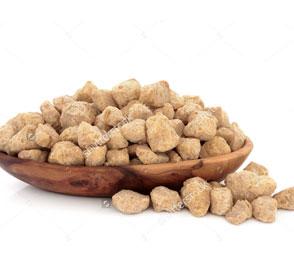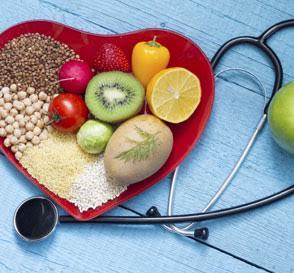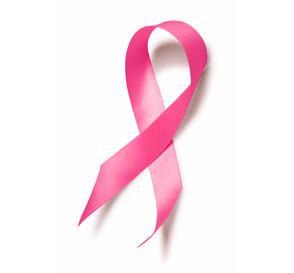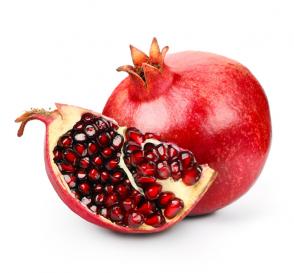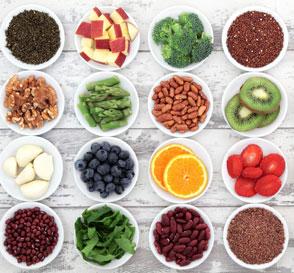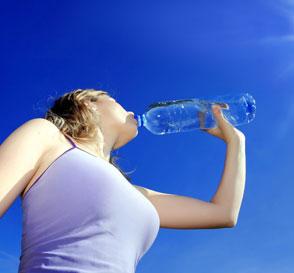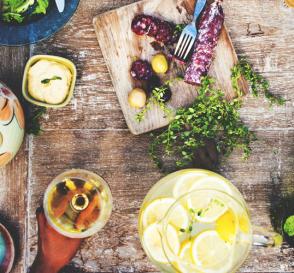

Leave your details below and we'll get back to you!
*All fields are mandatory
Health Tips
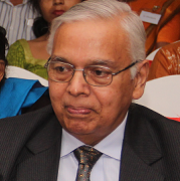
By Dr. Jagdish Pai
Dietician / Nutritionist, Mahalakshmi, Bhulabhai Desai Road

They used to say, that prevention is better than cure. It was never truer than the present times, when health care costs have sky-rocketed. Some of the lifestyle diseases such as diabetes and heart diseases are so expensive to cure and manage that it is better to have healthy lifestyle and have a healthy body that would not only require less to maintain but one can enjoy more and for longer time. Some simple tips can go a long way in having a healthy life.
-
One must start with a good breakfast. The body after no nourishment for about 8 to 10 hours needs food that supplies all nutrients including proteins, carbohydrates and various vitamins and minerals.
-
In a warm country like ours we must keep our body hydrated; so drinking water and fluids to prevent dehydration due to water loss occurring throughout the day through breathing, sweating, urine is a must..
-
Total intake of water or other liquids in a day must be about 6 to 8 glasses in order to compensate the loss of water from the body. In warmer weather, water loss is more and one needs to drink more if one engages in physical activity that causes greater loss of water through sweat.
-
We must consume a variety of different foods during our meals, including rice, chapatti, vegetables, pulses, fruits, milk, meats and eggs as well as pickles, fried products, sweets and beverages etc. The overall diet should be balanced so that our body gets all the nutrients it needs.
-
One does not have to give up tasty foods like pizza, burger & ice cream. One needs to compensate for nourishment through foods with more protein, fibre and vitamins & minerals. Soya is one such very useful ingredient that provides this balance.
-
Nowadays, because of pollution and contaminants of all kinds, fruits, vegetables, and other staples contain a lot of microbes and chemicals which can be greatly reduced if washed thoroughly. Washing and handling them hygienically minimises the chances of disease causing germs and toxic chemicals getting into our body.
-
Proteins are essential for the growth of children and play an important role in maintaining the health of adults as well. It is one of the most essential nutrients.
-
We must eat an adequate amount of high quality proteins. Milk, egg and soya are sources of very high quality proteins and if consumed with other sources of proteins, the overall quality of protein consumption improves. Meats, grains and pulses also have proteins.
-
Carbohydrates provide energy needed for maintaining all the healthy processes of the body as well as our physical movement and other activities. Starches and sugars provide carbohydrates.
-
Sugars also provide sweetness so sugar is added in foods like chocolates, cakes, candies and soda to make them sweet.
-
Fats and oils provide more concentrated sources of energy. If we consume more carbohydrates and fats than our body needs, we put on weight and may become obese.
-
Obesity is an undesirable health condition and it creates many problems like hypertension, heart diseases and diabetes.
-
Losing weight should be done by both reducing food intake and increasing physical activity.
-
People become obese because they eat more than the body needs. When the meal consists more of carbohydrates with lesser amounts of proteins and fibers, people eat more to feel satisfied.
-
Proteins from meats, milk, soya and pulses provide satiety.
-
Fibres also fill the stomach and provide satiety. Soya, pulses and whole grains have more fibers so they are useful in weight control.
-
Having food in smaller portions also helps to cut down overeating.
-
Soya fibre has also been associated with blood sugar control so it is useful for diabetics.
-
Poor diet with highly saturated foods and trans fat and cholesterol; obesity, high blood pressure, and physical inactivity are among the causes of heart disease besides other factors like smoking, drinking, stress etc.
-
Fiber is also useful in lowering cholesterol. Many fibres such as soya and oats are useful to lower cholesterol level to reduce the risk of heart disease.
-
Increasing fiber in the diet is easier when one eats whole grain products such as whole wheat bread or biscuits, and adding fruits and vegetables to the diet.
-
Whole fruits have more fiber than juices.
-
B-complex vitamins are quite important for growth and development. Most are involved in metabolism of food components and folate is needed to prevent brain and spine defects during birth.
-
Proper nutrition of mothers is needed for the birth of a healthy baby.
-
Vitamin A is needed for healthy vision and is present as precursor Carotene in carrots and oranges.
-
Spices add taste and healthiness to food.. Cinnamon controls blood sugar, turmeric fights cancer & infections, garlic is good for the heart and is antifungal & antibacterial.
-
Iron is needed for oxygen transfer in blood and for other metabolic functions. Its deficiency causes anaemia and weakness. Meat and fish are good sources of iron.
-
Vegetarians may get iron from soya, other beans, spinach, oats etc.
-
Although milk is an excellent source of nutrients, it is prone to spoilage and contamination so it is pasteurised and stored, refrigerated or sterilised and stored under ambient conditions, or it is dried to form milk powder.
-
Raw milk may cause many diseases due to presence of Salmonella, E. coli and Listeria.
-
Another way of preserving milk is by fermentation to curd using friendly milk bacteria called lactic acid bacteria. Curd or ‘dahi’ contains several vitamins.
-
Some of the lactic acid bacteria provide health benefits like reducing diarrhoea, prevent colon cancer etc. and are called probiotics.
-
Fiber is also useful in preventing colon cancer. Soya fiber has been shown to reduce the risk of cancer.
-
Omega 3 fatty acids have many health benefits including lowering cholesterol levels thereby lowering the risk of heart diseases, arthritis, asthma and improving infant brain development,
-
Fish is a good source of omega 3 and regularly eating fish is recommended.
-
Vegetarians may get omega 3 fatty acids from soya, mustard oil, flax seed oil etc.
-
Because of changes in lifestyle we get less time to walk, spend time in the park or play sports due to working late, traffic jams etc. So spend some time at home doing exercise and yoga which relieve stress.
-
Older people need less energy, so to avoid putting on weight they eat less. Because of that they receive less nutrients like vitamins and minerals and proteins. Soya is an excellent way to add more protein to the diet.
-
Exercise is very essential for older people in order to avoid wasting muscle strength. So besides having good sources of proteins like soya and whey protein, they should also try resistance training and yoga to keep their muscles in tone.
-
When it is difficult to get all nutrients through foods, supplements are useful.
-
Fortified foods like breakfast cereals are one way to ensure intake of most essential nutrients.
-
Calcium is needed by children for strong bones. Milk is a good source of calcium. Soya is a very good source too.
-
Women after menopause encounter osteoporosis, but eating soya products reduces the risk of osteoporosis.
-
Soya is beneficial to older women to overcome the symptoms of menopause.
-
Too much salt causes high blood pressure (hypertension). Salt reduction is necessary and hypertension leads to heart disease.
-
Soya isoflavones are useful in reducing the risk of heart disease.
-
Sleep is also essential for healthy living.
-
Warm milk at night helps us get good sleep as it aids the brain in producing sleep-inducing melatonin.
-
Adequate sleep is necessary to reduce the risk of diabetes, hypertension, heart disease and depression as well as weight gain.
-
One must not eat heavy meals at night as it interferes with sleep.

Popular Articles
Related Articles











